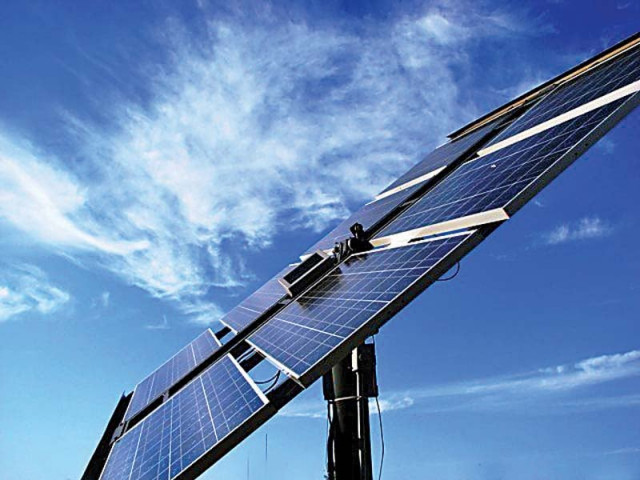NEPRA chairman emphasises green energy
Says net-metering most effective tool to enable renewable power generation

Distributed generation through net-metering is one of the most effective tools to enable renewable power generation at the grass-root level and is one of the key focus areas of the National Electric Power Regulatory Authority (Nepra) for meeting increased electricity demands sustainably, said Nepra Chairman Tauseef Farooqi.
Addressing the launch of a research report on ‘Barriers and Drivers of Solar Prosumage: A Case Study of Pakistan’, he said that being a power regulator, Nepra was paving the way for clean energy and establishing a liberalised power market for its consumers.
He further said that Nepra envisions making the power sector green by promoting renewable power generation according to the government’s goals and objectives. He regarded net-metering as one of the most effective instruments that have triggered the renewable power market development, particularly for the solar PV market at the grass-root level.
“Distributed generation remains to be a key focus area for Nepra to satisfy the ever-increasing electricity demand,” he added.
With more than 120MW installed capacity of solar prosumage so far, he said, the consumers are already being provided with an opportunity to become producers of electricity themselves.
The Nepra chairman added that the regulator will look into and try to benefit from the recommendations provided in the study while continuing its efforts to improve the regulatory environment for the promotion of net-metering in Pakistan.
A detailed presentation on the study was delivered by researchers of the Institute of Policy Studies (IPS). It was followed by an expert panel discussion in which the panellists lauded the research work by IPS.
The panellists also highlighted the importance of promoting clean energy through cheap renewable energy resources, while emphasising the need for increased use of solar power to curb problems in the energy sector of Pakistan.
The experts also assessed barriers hindering the solar energy uptake in the country, whereas a consensus was developed to cater to these barriers through mutual efforts, as well as to promote renewable energy targets set in the Alternative and Renewable Energy Policy (2019) by the government.
Published in The Express Tribune, February 21st, 2021.
Like Business on Facebook, follow @TribuneBiz on Twitter to stay informed and join in the conversation.



















COMMENTS
Comments are moderated and generally will be posted if they are on-topic and not abusive.
For more information, please see our Comments FAQ